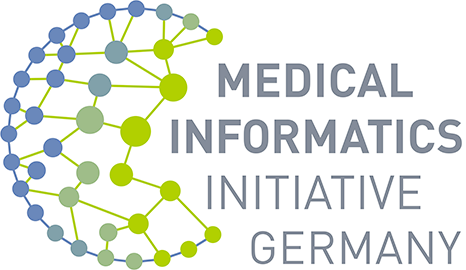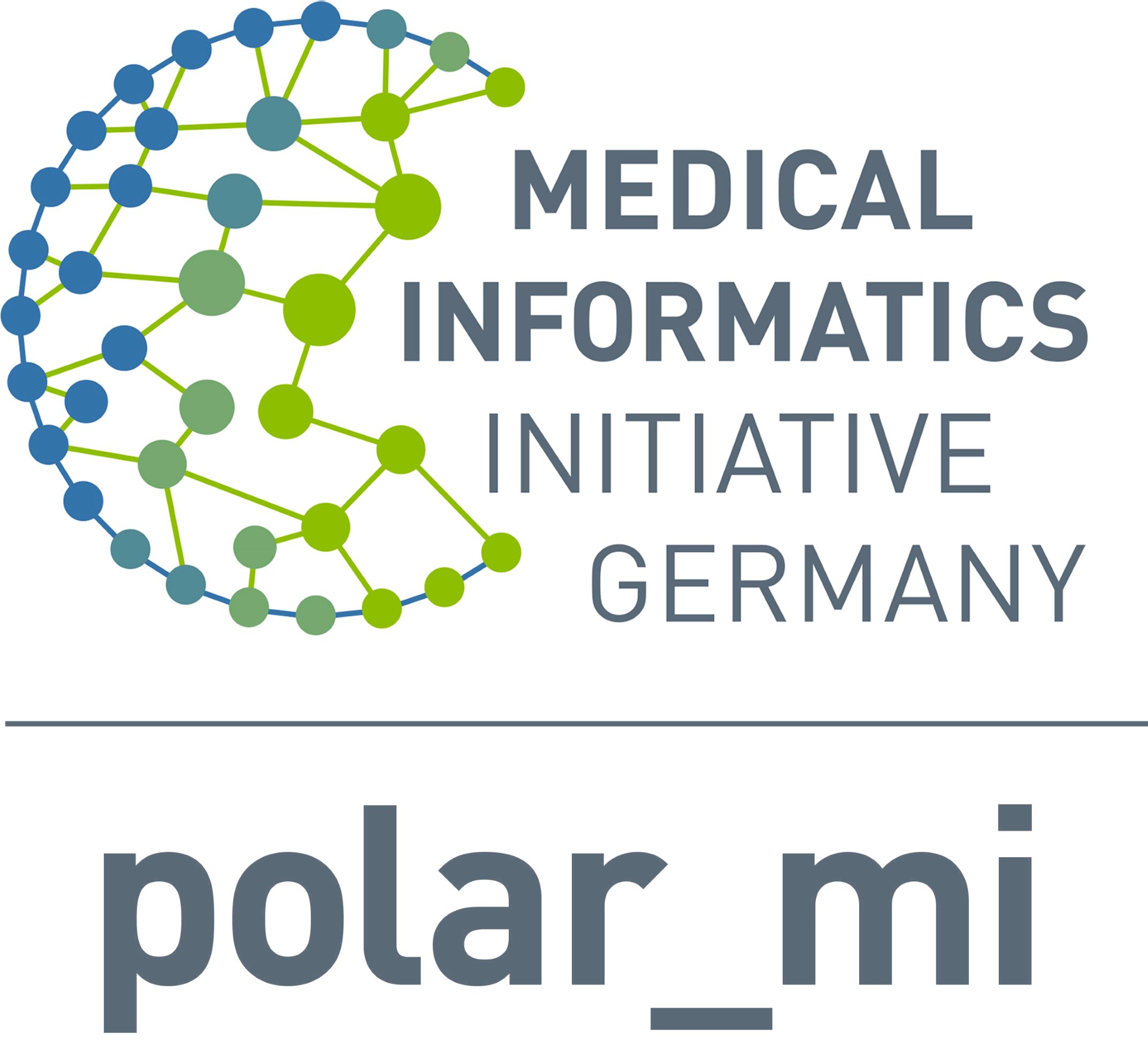The aim of the project is to use methods and processes of the Medical Informatics Initiative (MII) to contribute to the detection of health risks in patients with polypharmacy. Polypharmacy occurs especially in elderly patients with multimorbidity. Polypharmacy associated with an increased risk for medication errors and drug-drug or drug-disease interactions, which either reduce or intensify the desired effect of individual active substances or lead to undesired adverse drug effects (ADE). In the light of the aging population, potentially inappropriate medications (PIMs), which should be avoided in patients due to an unfavourable risk/benefit-ratio, represent an additional risk factor. Thus, POLAR focusses on the detection and prevention of medication-related problems in an interdisciplinary approach that creates a health IT infrastructure capable of supporting IT-based medication therapy safety across different health-IT consortia.
In this project
- Methods are developed and used to collect prospectively and retrospectively available personal data on prescribed drugs (e.g. medication plans) as well as on prescriptions from the hospital information systems of the study sites.
- We will provide and deploy a set of algorithms, which are able to classify a selected range of medications as "high risk prescriptions”.
- We will provide electronic scoring systems to identify high-risk patients for relevant drug-related problems.
- We will try to identify and quantify the occurrence of major aspects of medication-related problems including PIMs and contraindicated medications, frequent adverse drug events and ADE-associated outcomes (e.g. new diagnoses, healthcare utilisation, readmission, mortality).
While we have a core program for all participating centers covering the above objectives, we also plan a few selected special subprojects in whom only a small number of centers will participate. These subprojects have the aim to prepare for future follow-up projects regarding record linkage for 1-year mortality, for record linkage with medication use and adverse drug events in outpatient care, and in obtaining a text corpus for natural language processing with regard to ADE.
The POLAR project hence aims at fulfilling the following goals:
- To demonstrate that effective data usage can be made from MII centers across all 4 funded MII consortia
- To deploy and validate a set of algorithms to classify high risk medication which may prospectively be used for improving medication safety
- To obtain data on medication in Germany in the university hospital setting and hence provide a basis for future decision making
The project is involving medical informaticians, biometricians, epidemiologists, pharmacists, clinical pharmacologists and health care researchers from 21 institutions, among them 13 university hospitals. The project utilizes and relies on the processes and infrastructures (like data integration centers) established within the MII.
University hospitals and research institutions involved
SMITH
- Universität Leipzig
- Universitätsklinikum Leipzig AöR
- Universitätsklinikum Halle (Saale)
- Friedrich-Schiller-Universität Jena
- Universitätsklinikum Jena
- Rheinisch-Westfälische Technische Hochschule Aachen
- Universitätsklinikum Aachen AöR
- Universitätsklinikum Bonn AöR
- Universitätsklinikum Hamburg-Eppendorf
MIRACUM
- Friedrich-Alexander-Universität Erlangen-Nürnberg
- Universitätsklinikum Erlangen
- Universitätsklinikum Freiburg
- Universitätsklinikum Gießen
- Universität Heidelberg, Medizinische Fakultät Mannheim
DIFUTURE
- Universitätsklinikum Tübingen
- Ludwig-Maximilians-Universität München
HiGHmed
- Universitätsklinikum Heidelberg
- Universitätsklinikum Schleswig-Holstein, Campus Kiel
Further Partner Institutions
- Private Universität Witten/Herdecke gGmbH
- Rheinische Friedrich-Wilhelms-Universität Bonn
- MII-Koordinationsstelle der Technologie- und Methodenplattform für die vernetzte medizinische Forschung e.V.
Contact:
|
Prof. Dr. Markus Löffler Executive Coordination POLAR_MI Direktor des Institutes für Medizinische Informatik, Statistik und Epidemiologie (IMISE) Universität Leipzig, Medizinische Fakultät |
Dr. Daniel Neumann Project Management POLAR_MI Institut für Medizinische Informatik, Statistik und Epidemiologie (IMISE) der Universität Leipzig, Medizinische Fakultät |
|
Prof. Dr. André Scherag Deputy Executive Coordination POLAR_MI Direktor des Instituts für Medizinische Statistik, Informatik und Datenwissenschaften (IMSID), (Co-) Sprecher des Integrierten Forschungs- und Behandlungszentrum (IFB) Sepsis und Sepsisfolgen – Center for Sepsis Control and Care (CSCC) |
Dr. Editha Räuscher Pharmacist, scientific consultant POLAR_MI TMF – Technologie- und Methodenplattform für die vernetzte medizinische Forschung e.V. |


